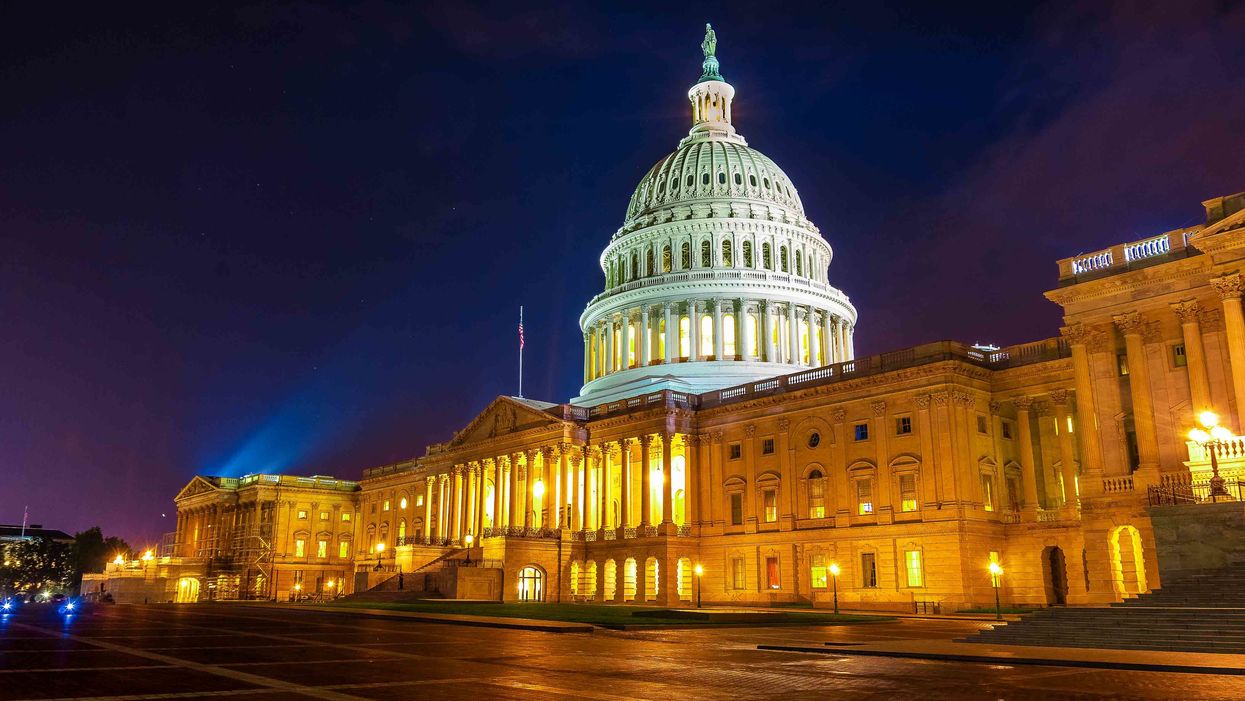Schuman writes the First Branch Forecast weekly newsletter and is policy director for Demand Progress, a nonprofit group advocating for civil liberties, civil rights and government reform. Harris is a former House aide and CEO of Popvox Inc., an information and resources platform for civic engagement and legislating.
The rapid spread of coronavirus has made it unsafe and unwise for members of Congress — many of whom are among those most likely to become grievously ill — to convene in person.
Current rules, however, require members to be physically present to vote on the floors of the House and Senate. If our legislative branch is to respond effectively to this crisis and play its vital constitutional role as a check on the executive and judicial branches, it must act now to give itself the option to convene in a temporary emergency remote session.
As speaker, Nancy Pelosi has the power to convene the House outside of the chamber if the public interest requires it; Senate leaders have similar powers. Whether the House or Senate could convene online in virtual session, however, is a different matter and likely would require each chamber to vote — and in person — to amend their rules in advance.
The unique circumstances of the coronavirus pandemic make it necessary for the House and Senate to do so now.
By Friday, members of both chambers will leave Washington for a long-scheduled week of working in their districts or states, a time when no official votes are held. (All congressional travel has been canceled for next week.) With multiple governors declaring states of emergency and the spread of the virus accelerating, we may face worse circumstances than now by the time Congress is set to reconvene in 10 days. That may include a federal emergency declaration and the invocation of presidential emergency powers; the situation ahead will likely require legislation and congressional oversight concerning the emergency response, in addition to Congress' normal duties.
Most likely, it will be difficult to safely bring members back to Washington. That is why Congress must act before the week is over to permit its leadership to temporarily convene the chambers in emergency remote sessions — where members are deemed present even if they participate online — and to direct relevant committees to set rules and provide mechanisms for legislative functions to be done virtually. And that should include voting.
This will not be easy. Congress has underinvested in its own technology for decades, and online deliberations and voting requires both money and technological improvisation to adapt congressional and private sector tools. While many organizations are transitioning to remote work, Congress is not a business. Legislating is a relationship-driven process and in-person votes are where much work is done.
And so this emergency measure should be time-limited and require regular votes for renewal. Any effort must ensure that the public and media have access to all official deliberations.
All Americans hope these fears are overblown, that current efforts to mitigate harm will be successful and that our health system will meet the needs of those impacted by the virus. But in the tragic event these hopes do not bear out, Americans expect their elected officials to make wise decisions — including maintaining their own health and safety so they collectively can carry out their duties and fulfill their oaths to "support and defend the Constitution of the United States."



















Marco Rubio is the only adult left in the room